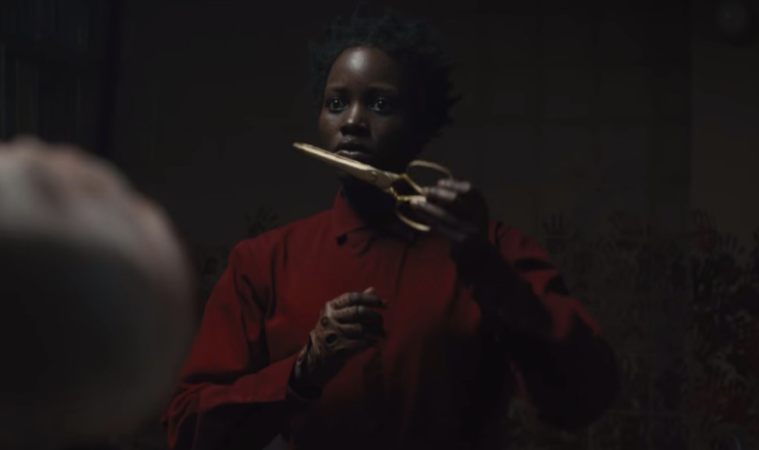The voice Lupita Nyong’o crafted for her villainous Us character, Red, has made some viewers see red.
After learning that Nyong’o based part of Red’s characterization on the neurological condition spasmodic dysphonia, some viewers took Nyong’o to task for portraying a disability in a dark light. In response, Nyong’o has issued an apology.
During her Thursday interview with ABC’s The View, Nyong’o clarified that Red’s voice was a “composite of many influences,” such as her imagination and her experiences with vocal injury, but she specifically addressed spasmodic dysphonia, which can be heard in Red’s vocal patterns.
According to dysphonia.org, spasmodic dysphonia is a condition in which the larynx tends to tense and involuntarily spasm when speaking. This can “cause the voice to break up, or sound strained, tight, strangled, breathy or whispery.” The exact cause of the condition is still unknown. However, as Nyong’o addresses in her interview, it is believed that the condition can develop after serious traumas, such as head trauma or stressful events. This could be the reason Nyong’o decided to base part of Red’s speech pattern on this condition.
Nyong’o said that while spasmodic dysphonia is one of her influences, she might have overstated how much of the condition she used to develop her character.
“In mentioning spasmodic dysphonia, it may have been disproportionate to what it actually is in the film,” she said. “I met with people as part of my exploration of the condition, and I learned how difficult it is to have the disorder. So I am very aware of the frustrations and misconceptions, the misdiagnosis…I thought in speaking out about it and mentioning it, it might shed light on the condition.
She says she understands why some people who are afflicted with spasmodic dysphonia became offended by her use of the condition in the film.
“It’s a very marginal group of people who suffer from this. The thought that I would offend them was not my intention. In my mind, I wasn’t interested in vilifying or demonizing the condition. I crafted Red with love and care. As much as it was in a genre-specific world, I really wanted to ground her in something that felt real. For all that, I’m sorry to anyone that I may have offended.”
Nonprofit organization RespectAbility was one of the first to comment on Nyong’o’s use of spasmodic dysphonia. RespectAbility’s President Jennifer Laszlo Mizrahi said that “connecting disabilities to characters who are evil further marginalizes people with disabilities who also have significant abilities and want to contribute to their communities just like anyone else.”
The organization did react to Nyong’o’s apology, stating, “We appreciate Lupita Nyong’o’s heartfelt apology. We’re all on a learning journey to be sensitive to all marginalized communities whether it be race, gender, sexual orientation/gender identity, disability, religion or anything else.”
“Us-especially with Lupita Nyong’o as the lead and Jordan Peele as the writer/director–is opening up doors, and breaking glass ceilings for people of color and is a massive advancement for Hollywood as a whole,” the statement continued. “We hope Nyong’o will use this experience to continue lifting up all marginalized groups including the 1-in-5 people who live with disabilities. In general, the Hollywood practice of using disability primarily to villainize people or to show them as objects of pity needs to end.”
READ MORE:

